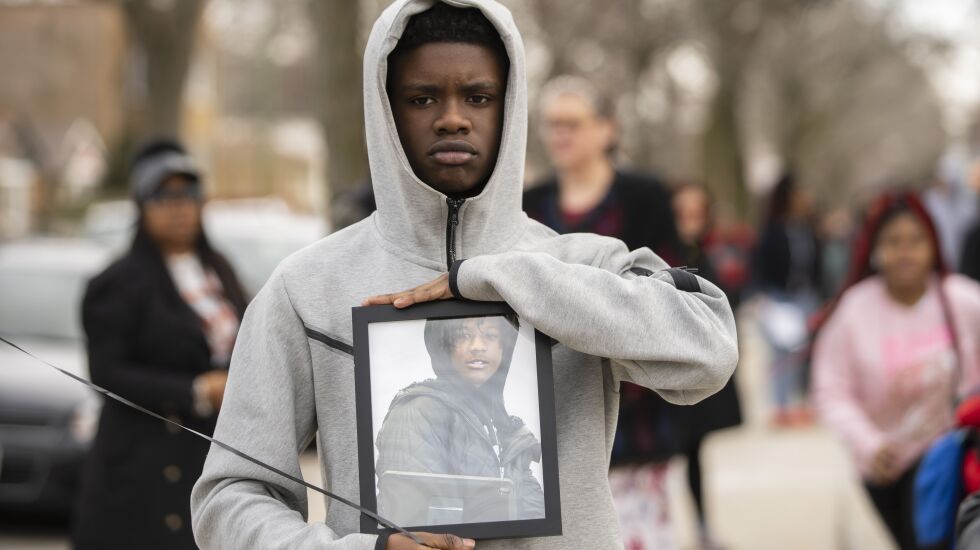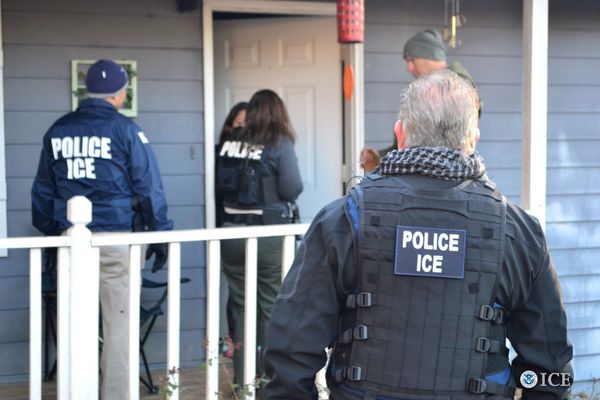
Shortly before midnight on Sunday, Feb. 19, six people were shot in a car on I-57 near 111th Street. Three, including a 1-year-old and two teens, were pronounced dead at the scene.
One of the teens killed, 13-year-old William Smith, was an eighth-grade student in an Englewood school. Last Wednesday, I visited William’s classroom for an hour with a therapist and a life coach from a local violence prevention organization. The kids needed to talk. With just a little prodding, the words came pouring out.
When the life coach asked the class how many knew someone who had been murdered, 28 out of 30 hands went up. Would 28 out of 30 kids in war-torn Afghanistan answer the same way?
For these Chicago kids, gun violence is their reality. They have all lost friends and family members. Their school has been on lockdown frequently, and their playtime in the schoolyard is routinely interrupted by gun shots.
They talked about how joyful and positive William was, how he always had a smile on his face, and how he worked hard to lift up others. They knew he was at risk because he told them he was, but they believed him when he said he wanted to get away from street life.
According to the school principal, William was especially charismatic. He only came to the school last November, but was already popular. He kept most of his possessions in his locker at school and moved between homes of relatives and friends.
“When we call police, they don’t even come.”
Halfway through the conversation with the students, the topic shifted from William to the larger context of gun violence and policing. These eighth-graders, all low-income kids of color from the surrounding community, began sharing harsh opinions of local police.
“We all know where the shootings are,” said one, asking, “How come the police don’t patrol there?” Another said, “When we call police, they don’t even come.”
Another described a fistfight that broke out in his neighborhood. Five police cars showed up but didn’t do anything. “They don’t serve or protect,” he said.
One student talked about the “loophole” in the 13th Amendment that allows society to enslave Black people through the prison system. “The prison-industrial complex is modern-day slavery,” she said.
Last year, nearly 3,600 people were shot in Chicago — nearly 10 a day — and about 700 were killed. The last three years have been among the most violent in the city’s history.
As the municipal election unfolds, everyone’s talking about public safety, but is anyone talking to these kids? If they were, they would better understand the deep lack of trust in police. They would understand the extent of the trauma suffered by tens of thousands of people of every age in high-crime neighborhoods.
They would also understand that simply adding more and more police to a city that already has more police per capita than just about any other city in America will not significantly reduce gun violence. We have not had under 400 homicides in a year since 1965.
Violence prevention organizations reduce gun violence by engaging directly with those most at risk of shooting or being shot. We walk with them, talk to them, hear them out and help them heal. We ask them what they need, and we give it to them — not for a day or a week, but for as long as it takes to help them shift from the life they live to the life they need.
Like William Smith, young people living dangerous, unstable lives need a roof overhead, food in the fridge, clothes on their backs and a few bucks in their pockets. They don’t need a second chance. They need a first chance — the one they never had — to learn and laugh and live safely and freely.
They also need confidence that when they call police in a crisis, police will come quickly and treat them with respect. Today, the eighth-graders in William’s school do not have that confidence. Nor do the adults in their lives. They’ve had too many bad experiences, too many funerals, too many young lives lost and a world that doesn’t seem to care.
The measure of Chicago’s safety cannot simply be a declining number of shootings or an increasing number of arrests. Instead, we must hold ourselves accountable by sitting in a classroom like the one I visited and asking kids how they feel. If they tell us they feel safe, respected and loved, then we’ll know we are on the right track.
Right now, we are not even close.
Peter Cunningham is a communications consultant working closely with violence prevention organizations in Chicago.
The Sun-Times welcomes letters to the editor and op-eds. See our guidelines.
The views and opinions expressed by contributors are their own and do not necessarily reflect those of the Chicago Sun-Times or any of its affiliates.







